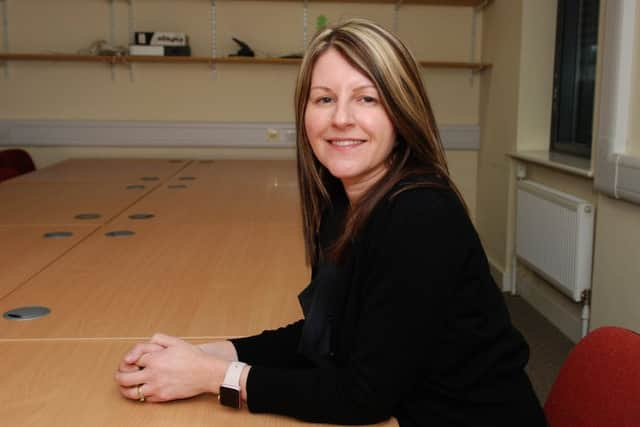Will UK universities follow Barack Obama’s controversial lead on tackling campus sexual violence?


“No university can say they have not got this issue on their campus,” warns Tammi Walker, the co-author of a timely new book on how higher education establishments deal with rapes and sexual assaults involving students at their institutions. “Victims of sexual violence need to know exactly who they can report to, what support will be offered and the process for bringing in the criminal justice system.”
Dr Walker, deputy director of The Centre for Applied Research in Health and a Reader in Forensic Psychology at the University of Huddersfield, wants to see a more unified approach to how cases of sexual violence at British universities are dealt with and believes Government action is urgently required – potentially drawing inspiration from tough policies introduced in America under Barack Obama that are now being rolled back by Donald Trump’s administration.
Advertisement
Hide AdAdvertisement
Hide Ad“What we don’t have is a clear set of standards for policy and practice and guidance in the UK which is rolled out across the university sector,” she says. “When you look at the US and Canada, they do. There are clear policies in place for looking at the evidence and accounts of the parties involved.”


She says while sexual violence is prevalent across all areas of society, factors such as young people being in an unfamiliar environment with people they have never met before contribute to its common occurrence at universities - with most victims being first-year female students.
Walker and Graham Towl, professor of forensic psychology at Durham University, have co-authored a book called Tackling Sexual Violence at Universities which contrasts how British universities are handling the problem compared to their counterparts in places like the US, Canada and Australia.
The book highlights how in America – where one in five female college students have reported experiencing sexual assault – the Obama administration followed a ‘yes means yes’ approach to the issue, where sexual assault was defined as any type of sexual contact or behaviour that occurs without the explicit consent of the recipient. The policy has now been altered under Trump to a narrower definition of non-consensual acts where victims ‘lack capacity to consent’ – a change critics argue allow for accused offenders to claim the silence of victims implied consent.
Advertisement
Hide AdAdvertisement
Hide AdUnder guidelines for colleges introduced under Obama, schools investigating allegations were encouraged to assess cases to the standard of evidence that it was ‘more likely than not’ that an assault had occurred but this has now been replaced by temporary guidelines from Trump’s Education Secretary Betty DeVos which suggests the use of a ‘clear and convincing evidence standard’.
Walker and Towl’s book argues that in British universities, investigations should be based on the civil standard of proof – ‘the balance of probabilities’ – rather than the criminal standard that evidence must be proved ‘beyond reasonable doubt’. “It is difficult to overstate the importance of this key element of any investigation policies for tackling sexual violence at universities,” it says. “Materially it may very well impact significantly on whether or nor students choose to report or not.”
The situation in America was the subject of a recent Louis Theroux documentary The Night in Question which spoke to young men accused of sexual assault on campuses and questioned whether the Obama-era regulations were too heavily skewed against those facing allegations. Walker says she would disagree with those who claim Obama’s regulations were too stringent and adds British universities are gradually making improvements while policies are now slipping back in America.
“We have got to talk about the poor conviction rate we have for rape and sexual assault that goes through the criminal justice system. I would disagree that is has gone too far. Unfortunately, it actually needs further work in America around prevention,” she says. “Trump is starting to dismantle some of the things that Obama did so well. But they have had decades of this kind of work in America, a long time to develop things. You need to take it in context and the UK is moving in the right direction.”
Advertisement
Hide AdAdvertisement
Hide AdShe says Durham University has appointed full-time specialist staff to deal with sexual violence cases, while Huddersfield is hiring two PhD researchers to investigate aspects of sexual violence and the role of the criminal justice system.
The efforts come as the fallout continues to Warwick University’s much-criticised handling of its ‘rape chat scandal’ in which male students exchanged repeated graphic messages about raping female coursemates they knew. Following the airing of a damning BBC documentary last month involving some of the female students who were targeted unhappy at their treatment by the institution and the appointment of the head of the press office to lead the investigation, Warwick’s vice-chancellor Professor Stuart Croft apologised and ordered an independent review of disciplinary procedures.
The BBC documentary highlights that while Warwick has been the most high-profile case in recent times, in the last year students from Exeter, Loughborough and Sheffield have been investigated, suspended or expelled in similar cases.
Walker does not wish to comment on the details of the Warwick case but says she hopes that the “absolutely awful situation” will act as a wake-up call for other universities. She says while there is positive progress being made, particularly by some individual universities, the UK lacks clear legislation governing the sector. “The university sector is now saying it is an issue. For action to be effective, it needs to be coming from Government. But I think that is a long way down the line. We should also be having universities themselves as institutions being more effective in this area.”
Advertisement
Hide AdAdvertisement
Hide AdUniversities UK published new guidelines offering advice on handling alleged student misconduct which may also constitute a criminal offence in 2016 but UUK does not have the power to make following the advice mandatory.
A 2011 National Union of Students survey reported that eight per cent of respondents said they had been in a situation during university where they had sexual intercourse when they didn’t want to because they were or felt unable to say no. But it also found many victims of serious sexual assaults did not go on to report them for reasons including shame or thinking they would not be believed.
Walker says the true extent of the problem is not fully known as not every university collects data on sexual violence, while many students don’t know how the reporting process works. She says reporting will improve when victims trust the system that is in place.
“To make that first step forward is so difficult and the impact of what happens then, not just for them but for their family, is just huge. For me, the victim always has to be believed until you look at what has been done in a proper objective manner. If you don’t put that out there, people will never come forward. Then you are never going to be able to bring perpetrators to justice.”
Money from book to support Yorkshire charity
Advertisement
Hide AdAdvertisement
Hide AdRoyalties from the sale of the book are being donated to Kirklees and Calderdale Rape & Sexual Abuse Centre.
The book was recently launched at a symposium at Huddersfield University, where Vice-Chancellor Professor Bob Cryan said despite there being “robust” strategies in place, more can still be done by universities.
“Given sufficient vision and determination, we can devise procedures that will minimise the incidence of sexual violence, not least by giving victims the confidence to report incidents,” he said. “They must be secure in the knowledge that they will be treated with the utmost sympathy and given all the practical support they need, for as long as they need it.”